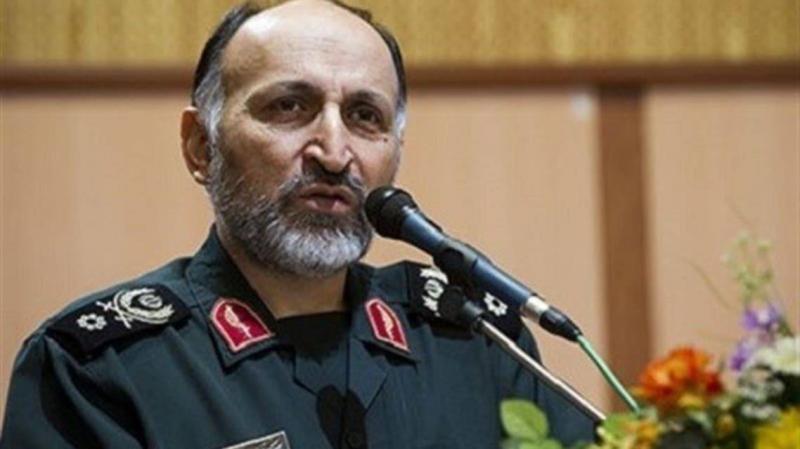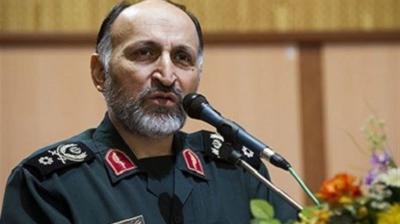Amir Moghaddam, the former director of public relations at the Iranian presidency, stated on Monday that Brigadier General Mohammad Hojjati, the deputy commander of the Quds Force of the Revolutionary Guard and a former leader of the Basij force, who was reported to have died due to a heart attack on Sunday, was the highest-ranking commander of the Iranian Revolutionary Guard in supporting the Houthis in Yemen.
In his tweet, he noted: "Hojjati was the highest-ranking commander of the Iranian Revolutionary Guard in support of the Houthis in Yemen, traveling to Yemen and Venezuela, and he was a significant figure in missile programs and terrorist activities." He added that Hojjati specifically led projects against the UAE and Saudi Arabia. He concluded with: "There is a direct relationship between the targeting of the Saviz ship, Natanz, and the death of Hojjati, as well as future developments in Yemen and the Vienna talks."
The public relations of the Iranian Revolutionary Guard had announced on Sunday evening the death of Brigadier General Mohammad Hojjati due to a heart attack. However, there were conflicting reports about Hojjati’s death; the Revolutionary Guard claimed it was due to a heart attack, while Mohammad Mahdi Hemmat, the son of former Iranian Revolutionary Guard commander Mohammad Ibrahim Hemmat, tweeted that "the departure of Hojjati was not at all due to a heart attack." Hemmat referred to Hojjati as a "martyr" and extended condolences to Leader Ali Khamenei, stating: "O my leader, I condole you for this soldier; he went in your sacrifice. I will also sacrifice for you."
His tweet was quickly shared widely across social media and websites in Iran before Hemmat set his Twitter account from public to private.
Hojjati was known as a missile expert who oversaw the arming of "Lebanese Hezbollah militias" and played a prominent role in supporting, backing, and guiding Iran-aligned Popular Mobilization Forces in Iraq, as well as the Houthis in Yemen. Notably, Israeli Prime Minister Benjamin Netanyahu accused Iran and Hezbollah in statements on August 28, 2020, of trying to implement a missile project in Lebanon and threatened that Israel would destroy this project. On the same day, the Israeli army revealed the names of three Iranian commanders who were executing the missile project in Lebanon for Hezbollah, including Mohammad Hojjati, Majid Nowab, and Ali Asghar Nourouzi.




